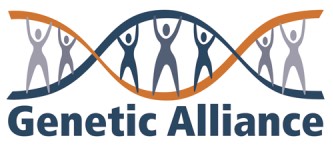UNC Catalyst Initiative Designed to Create, Share Tools for Fighting Rare Diseases

 The study of rare diseases is typically short-changed with research funding, and the creation and sharing of tools to fight these disorders is the mission of a new initiative launched at the University of North Carolina at Chapel Hill.
The study of rare diseases is typically short-changed with research funding, and the creation and sharing of tools to fight these disorders is the mission of a new initiative launched at the University of North Carolina at Chapel Hill.
The UNC Catalyst for Rare Diseases project, funded by a $2 million grant from UNC’s Eshelman Institute for Innovation, will provide patient support groups and rare-disease organizations with the information resources and research tools needed to train post-doctoral fellows to become scientific experts investigating new treatments for specific rare diseases, such as muscular dystrophy.
According to the National Institutes of Health, in the U.S. a rare or orphan disease is defined as one that affects fewer than 200,000 people. Among the more than 6,800 diseases classified as rare, many are genetic, many of them caused by a single-gene mutation, including muscular dystrophy, cystic fibrosis, and Huntington’s disease.
DNA mutations associated with many rare diseases have been identified during the past decade, but relatively little progress has been made in moving from scientific knowledge genetic disorders to development of treatments, partly due to a lack of high-quality research tools available for investigating these diseases, and a shortage of researchers trained to work in these areas of knowledge.
UNC Catalyst is particularly committed to understanding functional consequences of genetic mutations, and will work with patient organizations that have no wet lab bench resources, helping to enable them in their pursuit of rare disease research. The UNC Catalyst also will partner with foundations, patient groups, and individuals in fundraising and advocacy for rare disease research in addressing the problem that funding to develop critical biological tools often is difficult to attract.
Catalyst investigators will work toward objectives such as creation of high-quality research tools for disease-related proteins, and using a pre-competitive open access science model to magnify and accelerate the impact of the initiative. The intent is to freely, and without restriction, immediately share knowledge, materials and discoveries created by this initiative with the global research community.
 Tools developed by UNC Catalyst will advance exploration of disease patho-biology with the overall target goal of quickening the pace of discovery and definition of new therapeutic intervention options. The UNC Catalyst will partner with the Genetic Alliance, a 501 (c)(3) not-for-profit network of more than 1,200 disease-specific advocacy organizations and thousands of universities, private companies, government agencies and public
Tools developed by UNC Catalyst will advance exploration of disease patho-biology with the overall target goal of quickening the pace of discovery and definition of new therapeutic intervention options. The UNC Catalyst will partner with the Genetic Alliance, a 501 (c)(3) not-for-profit network of more than 1,200 disease-specific advocacy organizations and thousands of universities, private companies, government agencies and public  policy organizations. Another UNC Catalyst partner will be the Structural Genomics Consortium (SGC-UNC), a public-private partnership with active research facilities at six leading academic institutions around the globe including, UNC-Chapel Hill.
policy organizations. Another UNC Catalyst partner will be the Structural Genomics Consortium (SGC-UNC), a public-private partnership with active research facilities at six leading academic institutions around the globe including, UNC-Chapel Hill.
 “Science has cracked the human genome, but translating that knowledge into new medicines has been painfully slow,” said Bob Blouin, director of the Eshelman Institute and dean of the Eshelman School of Pharmacy in a press release. “This is especially true for rare diseases, which suffer from a lack of visibility, resources and research expertise. UNC Catalyst will create and freely share the tools and the basic expertise currently missing in the study of many rare conditions,” he said.
“Science has cracked the human genome, but translating that knowledge into new medicines has been painfully slow,” said Bob Blouin, director of the Eshelman Institute and dean of the Eshelman School of Pharmacy in a press release. “This is especially true for rare diseases, which suffer from a lack of visibility, resources and research expertise. UNC Catalyst will create and freely share the tools and the basic expertise currently missing in the study of many rare conditions,” he said.
“The hundreds of rare disease advocacy organizations in Genetic Alliance’s network will benefit greatly from this partnership,” said Sharon Terry, president and CEO of Genetic Alliance. “We have long worked for an open-science scalable approach to build research tools and support the necessary talent to accelerate solutions to ultimately ameliorate suffering in the millions of individuals affected by rare diseases. This answers that need, and we are delighted to work with these partners,” Terry said.
The UNC Catalyst for Rare Diseases will work in partnership with the Genetic Alliance and the Structural Genomics Consortium, to establish a dedicated laboratory and data hub at UNC-Chapel Hill to anchor the collaborative initiative.







